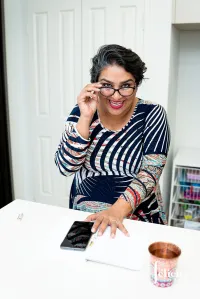
The Roots of DEI
Diversity, Equity, and Inclusion (DEI) initiatives have been a cornerstone of progress in modern societies. Yet, with increasing political pushback—particularly in the United States under the influence of Donald Trump’s policies—there is a rising global concern about the rollback of DEI measures. Australia is not immune to this shift. As organizations, politicians, and corporate leaders question the validity of DEI, it’s critical to remember why these measures exist in the first place and how they have reshaped society for the better.
The Origins of DEI: A Response to Systemic Inequities
DEI did not emerge from thin air—it was born from necessity.
The Civil Rights Movement (1960s, USA): Affirmative action and equal opportunity policies were created to combat deeply entrenched racial discrimination in hiring, education, and housing.
Anti-Discrimination Laws (1970s-1990s, Australia & Beyond): The Racial Discrimination Act (1975), Sex Discrimination Act (1984), and Disability Discrimination Act (1992) in Australia laid the groundwork for DEI principles.
Workplace Evolution (2000s-Present): The expansion of DEI efforts to include gender, LGBTQ+ rights, neurodiversity, and economic inclusion has improved workplaces and public spaces alike.
How DEI Transformed the World
DEI measures have not simply been about corporate diversity quotas. They have actively reshaped entire industries, social structures, and public policies:
Education: Inclusive scholarships, accessibility measures, and representation in curriculum.
Healthcare: Cultural competency in medicine, improved outcomes for marginalized communities.
Corporate Leadership: More women, Indigenous Australians, and people from diverse backgrounds in executive roles.
Public Spaces & Policy: Disability access, gender-inclusive facilities, and policies that promote a more inclusive society.
DEI is NOT Just About Race or Hiring Practices
A major misconception about DEI is that it is solely about racial inclusion or corporate hiring policies. In reality, DEI extends to:
Neurodivergent individuals gaining accommodations in workplaces.
Women and parents accessing flexible work arrangements.
LGBTQ+ individuals receiving legal protections against discrimination.
Disabled individuals gaining physical and technological accessibility to jobs and services.
First Nations and Indigenous people having increased representation in leadership and governance.
Meritocracy & DEI: Are They at Odds?
One of the biggest arguments against DEI is that it supposedly undermines meritocracy. This is a myth.
A true meritocracy can only exist if everyone has the same starting line—something history shows is far from reality. If meritocracy were as simple as ‘hard work gets you ahead,’ then historical and systemic inequalities wouldn’t persist. DEI doesn’t hand out success—it removes the barriers that prevent talent from being recognized in the first place.
The global push to dismantle DEI measures—led by political movements like those in the US—is a dangerous precedent. The rollback of affirmative action in universities, bans on DEI-focused hiring practices, and rhetoric against inclusive policies signal a regression in social progress. In Australia, where many organizations model their DEI strategies on international frameworks, the impact is already being felt.
If DEI is abandoned, here’s what we stand to lose:
Reduced workplace diversity, leading to poorer business outcomes and innovation.
Increased discrimination, making it harder for marginalized groups to break into leadership.
A step backward in disability rights, gender equity, and cultural inclusion.
Rather than seeing DEI as a corporate compliance measure, it must be reframed as a fundamental necessity for a just society. Everyone benefits when workplaces, public spaces, and policies include diverse perspectives and experiences.
For those in Australia who believe DEI is ‘just a US issue,’ think again. The global ripple effects of the rollback are already influencing policy and corporate decisions here. The question is: will we let progress be undone, or will we reinforce the value of equity and inclusion for all?
My question for you is : What kind of society do we want to live in? The rollback of DEI policies isn’t just a corporate issue—it affects our schools, communities, and everyday interactions. Pay attention to the conversations happening around you. When you hear misinformation, challenge it. When you see exclusion, question it. What’s one small way you can advocate for inclusion today?
In the spirit of unity and respect, I acknowledge and pay my heartfelt respect to the traditional custodians of Whadjak country, the Noongar people. I stand on this ancient land with deep appreciation for their enduring connection to country, culture, and community. As we gather and work together, may we honor the wisdom of the Noongar elders, past, present, and emerging, and strive to nurture a harmonious relationship with the land, its stories, and its people.


Facebook
LinkedIn
TikTok